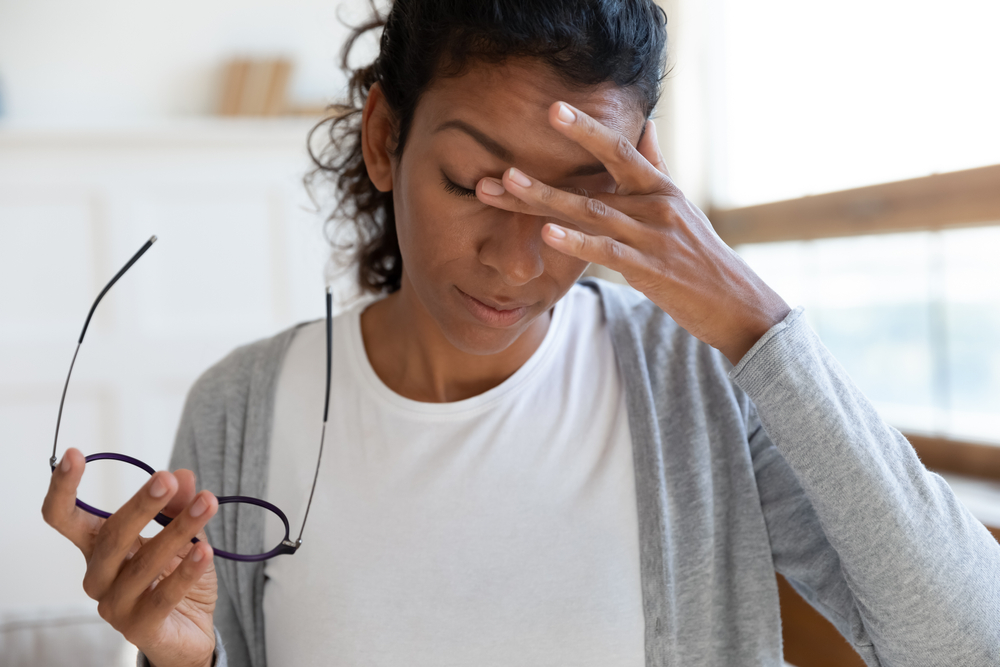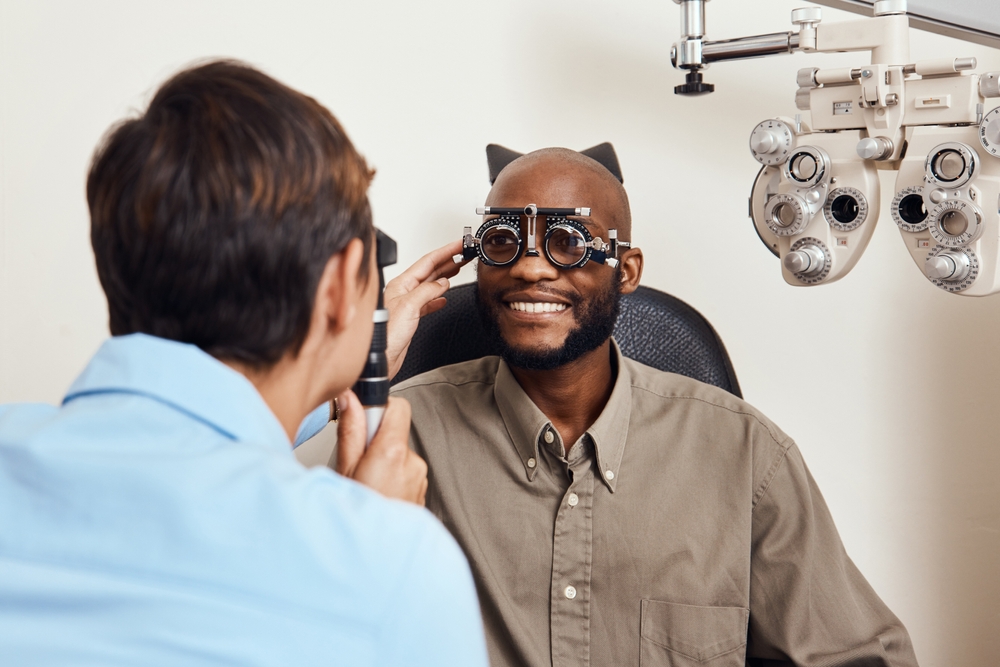Watery Eyes? It Could Be Dry Eyes
5/21/24
Do you have watery eyes? Do you also suffer from dry eyes? If your eyes water a lot, it could be because they aren't getting enough moisture.
Although it may sound counterintuitive, excessive watering and persistent tearing occur when the normal tear film does not provide sufficient moisture. The tear film keeps the eyes lubricated and healthy and is distributed over the surface of the eye every time you blink.
If you have watery eyes, it's because you produce reactive tears to compensate for an inadequate tear film. Unfortunately, watering often doesn't alleviate the symptoms caused by an insufficient tear film, so your eyes become dry.
Keep reading to discover why having watery eyes could be a sign of having dry eyes and what this could mean for keeping your eyes feeling their best!
What are Dry Eyes?
 If you have dry eyes, they can develop for several reasons. Besides watering, dry eye symptoms include burning, stinging, the feeling of grit in the eye, and a build-up of mucus around the eyes.
If you have dry eyes, they can develop for several reasons. Besides watering, dry eye symptoms include burning, stinging, the feeling of grit in the eye, and a build-up of mucus around the eyes.
Anything that affects how much moisture your eyes get can lead to dry eyes. Sometimes, your eyes will be too dry due to temporary factors like dry weather, improper contact lens use, dehydration, or not blinking enough.
However, in cases of temporary dry eye, symptoms usually go away once the trigger has been determined and found. Chronically dry eyes occur when an underlying issue affects tear production, causing an imbalance in tear composition. This is called dry eye syndrome.
Dry Eye Syndrome and Tear Composition
Your tears are made of three separate components, each making up a tear layer. The innermost layer is mucus, the middle layer is water, and the outermost layer is oil.
For your eyes to stay lubricated, all three components must be balanced. If you have dry eye syndrome, it usually means your eyes have trouble producing one of these components, so your eyes produce more of the other two components.
When these components are out of balance, you start seeing symptoms like dry eyes. However, the imbalance in tear composition still means your tear film can't adequately moisturize or lubricate your eyes, so your eyes become too dry.
When your eyes water as a reaction to being too dry, it doesn't alleviate the dryness because your reactive tears lack the same component as your tear film. If you have dry eye syndrome, you're not alone, as it's a prevalent eye condition that many people suffer from.
Fortunately, there are ways to treat dry eye syndrome and help you find the relief you need.
Dry Eye Risk Factors
Anyone can develop dry eye syndrome, but you're more likely to have it if you're:
- A woman, particularly when going through menopause
- Over 50
- Diagnosed with an inflammatory skin condition like rosacea
- Living with an autoimmune condition like Sjogren's syndrome
- Taking certain medications like antidepressants or birth control, which can reduce tear production
If you have dry eye syndrome, you could experience various symptoms. The most noticeable may be watery eyes, as this depends on each patient. However, certain things can exacerbate dry eye syndrome and cause more severe symptoms like:
- Contact lens use
- Allergic conjunctivitis
- Dry air from AC
- Dehydration
- Poor nutrition
When you address these triggering factors, you may notice your eyes feel better. However, this is not likely to be enough to treat dry eye syndrome and its symptoms.
Most patients require professional treatment, as the long-term effects of dry eye syndrome go beyond just discomfort.
Learn More About Dry Eyes
The Importance of Treating Dry Eye Syndrome
If left untreated, dry eyes can lead to several problems. Without proper lubrication, eyes are more prone to complications from minor corneal abrasions.
Corneal abrasions tend to heal if you have a healthy tear film, but when your eyes are too dry, they may not heal. They may even become infected and turn into ulcers.
Corneal ulcers cause scarring, which can lead to permanent vision loss. This is why it's essential to address your dry eyes. Treatment can save your vision.
When to See Your Ophthalmologist or Optometrist About Dry Eyes
 If you have dry eye symptoms that don't improve after using eye drops or trying other things, it's time to see your ophthalmologist or optometrist at Washington Eye Specialists. You may use a humidifier in your home, drink more water, or use a warm compress to help your eyes feel better.
If you have dry eye symptoms that don't improve after using eye drops or trying other things, it's time to see your ophthalmologist or optometrist at Washington Eye Specialists. You may use a humidifier in your home, drink more water, or use a warm compress to help your eyes feel better.
If you have dry eyes, you may find that your eyes are watery but feel fine otherwise. If this is the case, you should still see your ophthalmologist or optometrist, as it can be a sign of dry eye syndrome.
Even if removing a trigger alleviates most of your dry eye symptoms, if you have any remaining symptoms, it's important to seek help.
Diagnosis and Treatment of Dry Eye Syndrome
At Washington Eye Specialists, we can diagnose your dry eyes by examining your tears. By examining your tears, we're able to tell if you have dry eye syndrome and what component your tears are lacking.
If you're diagnosed with dry eye syndrome, we can create a custom treatment plan. Your treatment may include small lifestyle changes, such as taking omega-3 nutritional supplements and using over-the-counter artificial tears and eyelid wipes.
When small changes aren't effective on their own, we may suggest prescription eye drops and in-office therapies. Treatment for dry eye syndrome is highly effective, and we can tailor treatment to your exact needs, alleviating your symptoms and preserving your vision.
Do you think you could have dry eyes? Find out more by requesting an appointment at Washington Eye Specialists in Washington, DC, today! Why wait if you could finally experience the relief you deserve?



